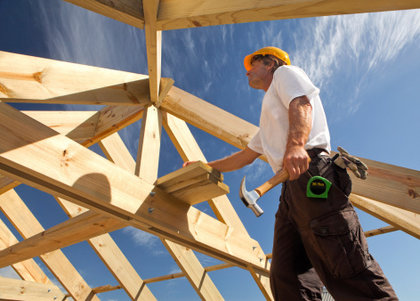Builder confidence held steady in November, with more builders seeing conditions as good than bad.
Builder confidence for the newly built, single-family home marketplace was unchanged in November from a downwardly revised level of 54 in the latest National Association of Home Builders/Wells Fargo Housing Market Index (HMI).
Though the index did not technically increase, more homebuilders have now rated market conditions as good than poor for sixth straight months.
Builder Confidence from the NAHB
Derived from a monthly survey that NAHB has been conducting for 25 years, the NAHB/Wells Fargo Housing Market Index gauges homebuilder perceptions on a number of areas in the single-family home marketplace. Key findings in November’s report included:
- The Housing Market Index index gauging current sales conditions in November held steady at 58.
- The component measuring expectations for future sales fell one point to 60, while the component gauging traffic of prospective buyers dropped one point to 42; again, any reading above 50 signifies that more builders see conditions as good than bad.
- Meanwhile, the Housing Market Index three-month moving average was mixed in the four regions. No movement was recorded in the South or West, which held unchanged at 56 and 60, respectively. The Northeast recorded a one-point gain to 39 and the Midwest fell three points to 60.
“Encouraging” Signs in Homebuilding
David Crowe, the NAHB’s chief economist, said that with everything going on right now in both the political and economic realms, it’s a positive sign that homebuilder sentiment is holding strong.
“Policy and economic uncertainty is undermining consumer confidence,” Crowe said. “The fact that builder confidence remains above 50 is an encouraging sign, considering the unresolved debt and federal budget issues cause builders and consumers to remain on the sideline.”
Rick Judson, the NAHB’s chairman, also spoke to the current adversities faced by builders.
“Given the current interest rate and pricing environment, consumers continue to show interest in purchasing new homes, but are holding back because Congress keeps pushing critical decisions on budget, tax and government spending issues down the road,” he said. “Meanwhile, builders continue to face challenges related to rising construction costs and low appraisals.”

